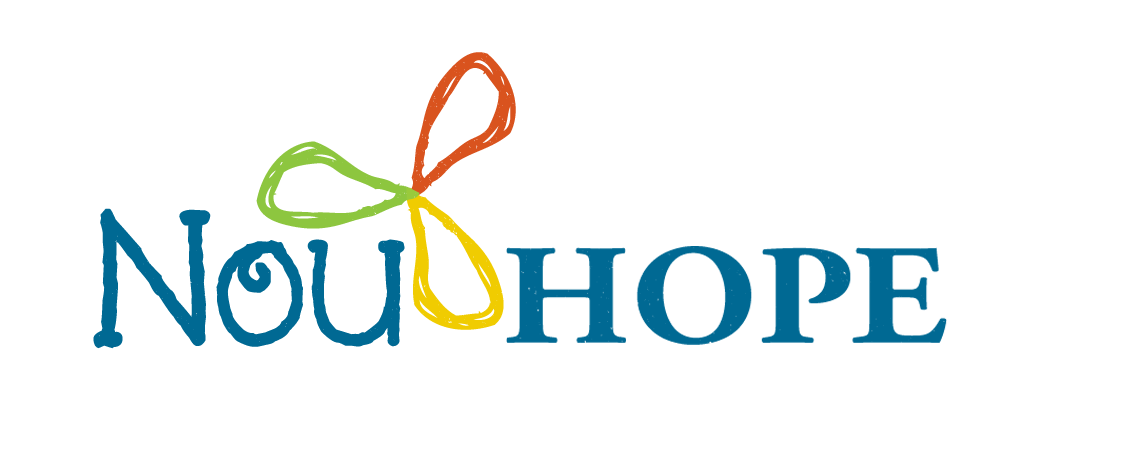Nou Hope works with NEPAC in Bringing the Communities Together for Phase 3: Transportation and Expanded Goat Breeding
Development Philosophy of NEPAC
NEPAC's development strategy is based on the principle of endogenous development. It recommends the conscious and voluntary participation of the population and the use of local resources as far as possible for the advancement of their environment. It is in this context that the planning of NEPAC intervention programs include a training component to ensure care by the community. It also avoids total dependence on external aid, from a mode of multidisciplinarity and versatile training.
The philosophy behind NEPAC's intervention to work for and with the people/farmers in order to place it in a structure, brings together the different associations and congregations working in their regions. This approach aims to create a new dynamic of inter-organizational cooperation, to avoid wasting resources which are becoming increasingly scarce. It also allows the popularization of knowledge and experience of each of the localities throughout the larger region of LaMare / Terre-Salei.
To read more about NEPAC, click here.
Phase 1: Agriculture - FULLY FUNDED
The following long-term objectives have been outlined in a proposal from NEPAC to Nou Hope:
Promote agriculture in the 19 localities
Increase the production capacity of the farmers
Encourage and supervise the planters association
Re-evaluate national national production passing through the 19 localities
Support and supervise traders of agricultural products
In order to work toward agricultural development, NEPAC has purchased a 6.26 acreage swamp land (think water!) as the project’s base, where people from each locality will work together for training and support of their respective localities (under phase 2). Participants have been preparing the land, building fencing, and most recently outfitting the land with a proper irrigation system.
Phase 2: Agricultural Education - FULLY FUNDED
This phase is a project that envisages farmers in the community, according to the history of Haiti - this country is an essentially agricultural country. This means 100% of Haitians live on the land, and 80% Haitians who work directly on the land, and our land is fertile. Therefore, the land is the main income of the people/farmers. Life is becoming more expensive day by day, in a difficult context when there is land, the only problem is the lack of finances. This project will support a part of community development that is one of the greatest needs of the population (food and drink), which will become a luxury day-by-day, where each farmer will benefit from the help and technical accompaniment of making their own fields and the borrowed capital will increase from time to time - benefitting their children, either in class or in university, and everything else. These two needs remain a major challenge for the Haitian people.
Members of NEPAC will join to support monthly salaries for a local agronomist and six agricultural technicians. 180 farmers/households from the total 350 farmers/households will be selected to invest in this micro-lending solidarity group, with 18-35 subgroups forming. Each subgroup will receive investment funds for their own land and reimburse the solidarity group at an interest rate of 3%, which will then be re-invested among new program participants. Earnings of this solidarity group will also go to purchase a three wheeler to transport produce from fields to local markets, etc. for the group.
Support for this phase of NEPAC's work will provide seeds and plants for the first two years of the project, after which the solidarity group will be self-sustaining.
Phase 3: Agricultural Education - FUNDING NEEDED
With NEPAC’s phase one and two initiatives complete, the community is ready for phase three! Reassessment and reporting shared by the community prioritize transportation and an expanded goat breeding program for this next phase. The local agricultural production, including the community farm, has increased significantly and daily transporting larger quantities of goods to the local markets is critical. NEPAC plans to purchase a three-wheeled motorcycle with a flatbed for hauling goods longer distances to regional markets. This will alleviate the stress put on the women who travel to and sell goods at the markets, as well as the animals currently used for transportation (that can’t be used daily over such long distances). In order to alleviate the stress of transportation in the community, $5,000 is needed. Additionally, animal breeding remains one of the most lucrative and sustaining ways for people to build wealth and provide food for their families. The community has already benefited from goat breeding and is ready and eager to expand these activities to additional households.
$40,000 dollars for phase three will fund NEPAC to purchase transportation and goats to be raised by 150 NEPAC members. It is estimated that 300 farmers will benefit directly from phase three.
As we seek to advance initiatives that create economy and sustainability in the area, we ask you to partner with us! Current, regular monthly donations provide stability through the subsidizing of 35 schoolteachers’ salaries. Additional support and one-time donations allow funds to be granted and invested in the generation of a flourishing economy, empowering the people to provide for their families.
Share this good news and consider coming alongside us!

